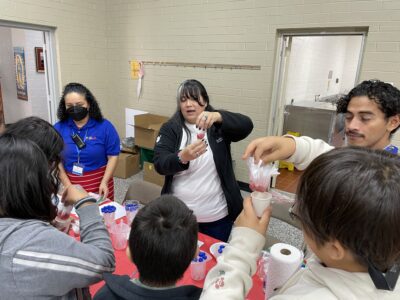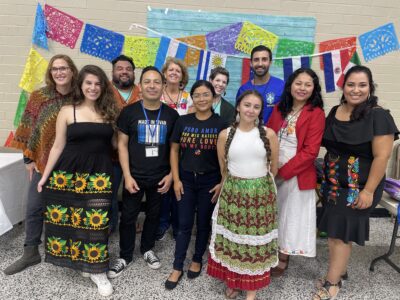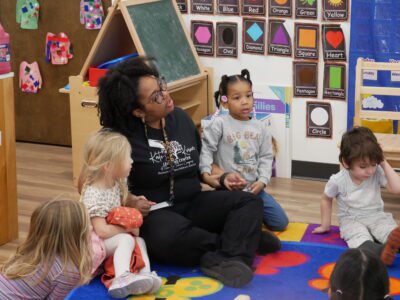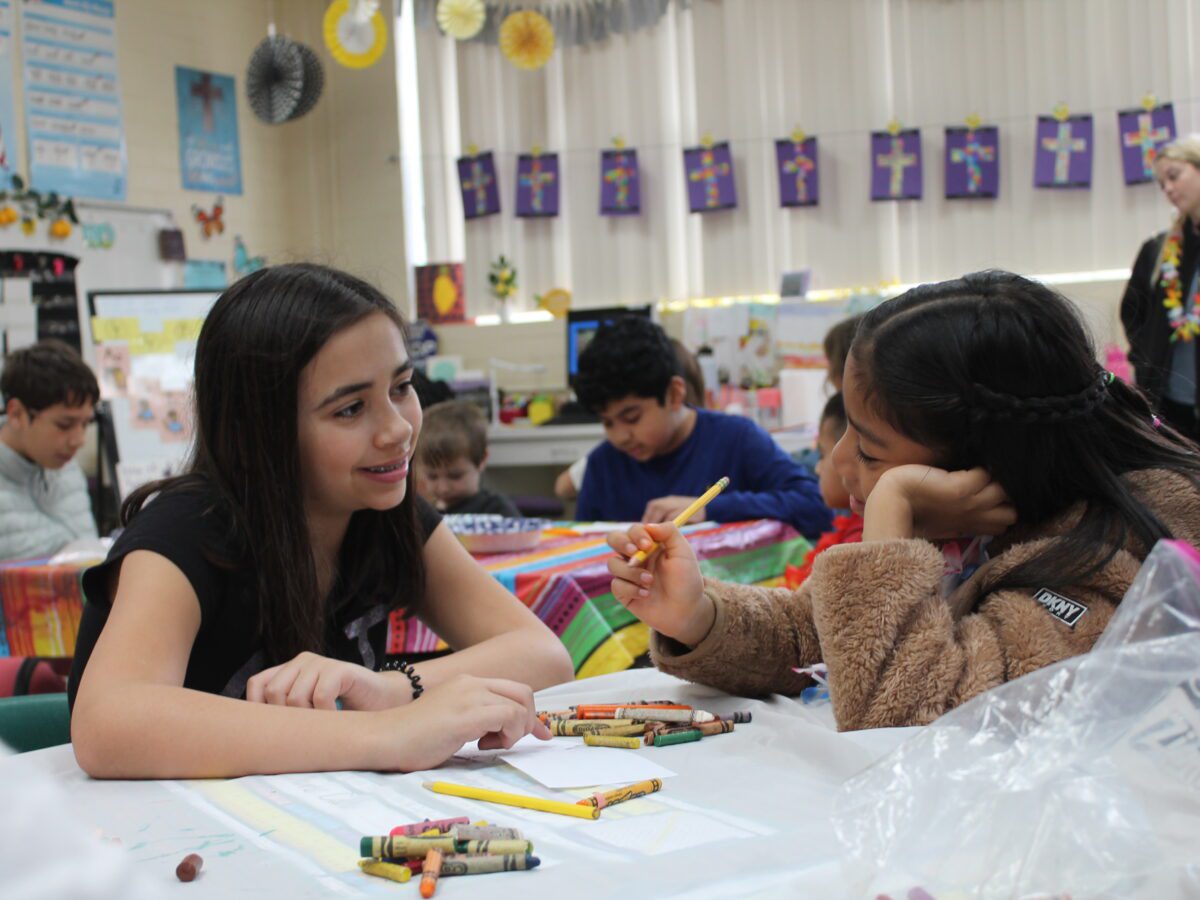
|
|
As 9:30 a.m. approaches on the first Saturday in March, the parking lot of St. Thomas More Catholic School in Chapel Hill is bustling with families.
Little kids run from minivans to the school’s entrance. Big kids rub the sleep from their eyes while stifling yawns. Adults balance boxes of snacks in their arms as they make their way through the front doors.
Everyone is welcomed with an enthusiastic “¡Hola!” or maybe a “¡Bienvenida!” from someone wearing a blue polo shirt.
This is ISLA Los Sábados, and for the next few hours, Latine students — and their families — will be immersed in Spanish language and culture.
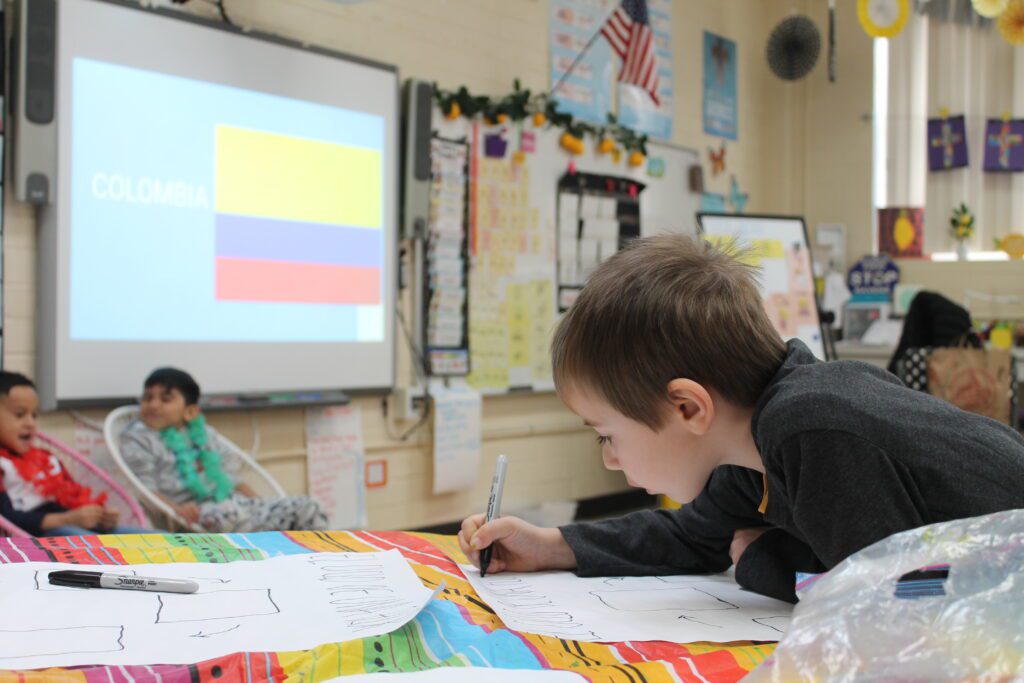
Escuela el Sábados: School on Saturdays
As ISLA (Immersion for Spanish Language Acquisition) explains on its website, “ISLA Los Sábados is a weekly educational heritage language immersion program for children ages 3 to 17 that aims to close the opportunity gap and open doors for Hispanic/Latino youth, their families and community.”
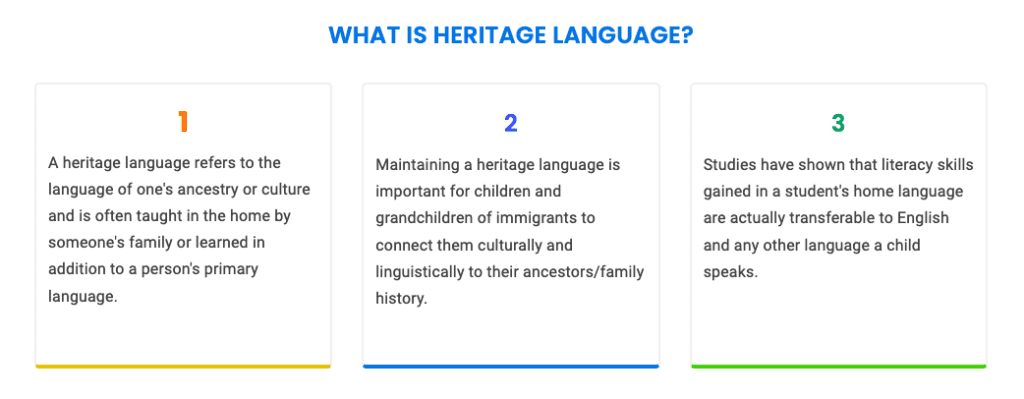
In 2023, Hispanic students had the lowest graduation rate of all demographic groups in the state.
ISLA points to the racial, linguistic, and cultural discrimination faced by Hispanic and Latine students as a contributing factor: “Many of these bright students internalize these external prejudices and see their bilingualism and multiculturalism as a disadvantage.”
That’s why ISLA Los Sábados exists — and why it’s free.
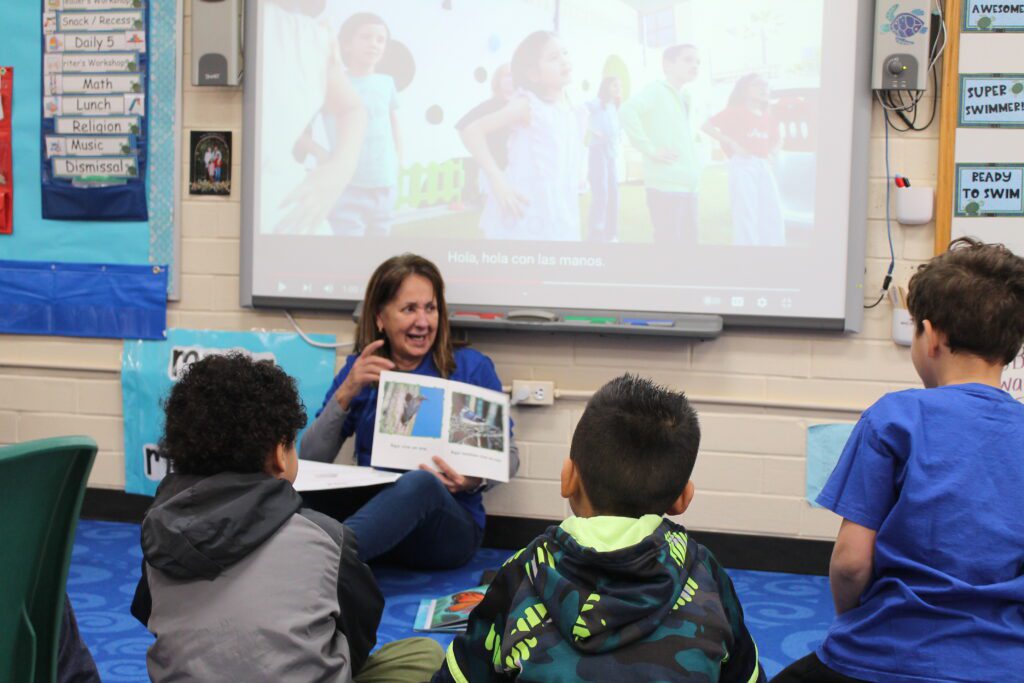
The program began in 2012 with a dozen kindergarten students, but over time expanded to include students from pre-k through high school. Los Sábados now has 165 students enrolled across 10 classrooms at St. Thomas More.
The addition of the older students led to new opportunities for student engagement, like Pequeños Gigantes (Little Giants).
“Pequeños means little and gigantes because the older ones, the big kids, read to the little ones,” said Susana Benites, co-director of ISLA. “That happens every other Saturday, and they love that time.
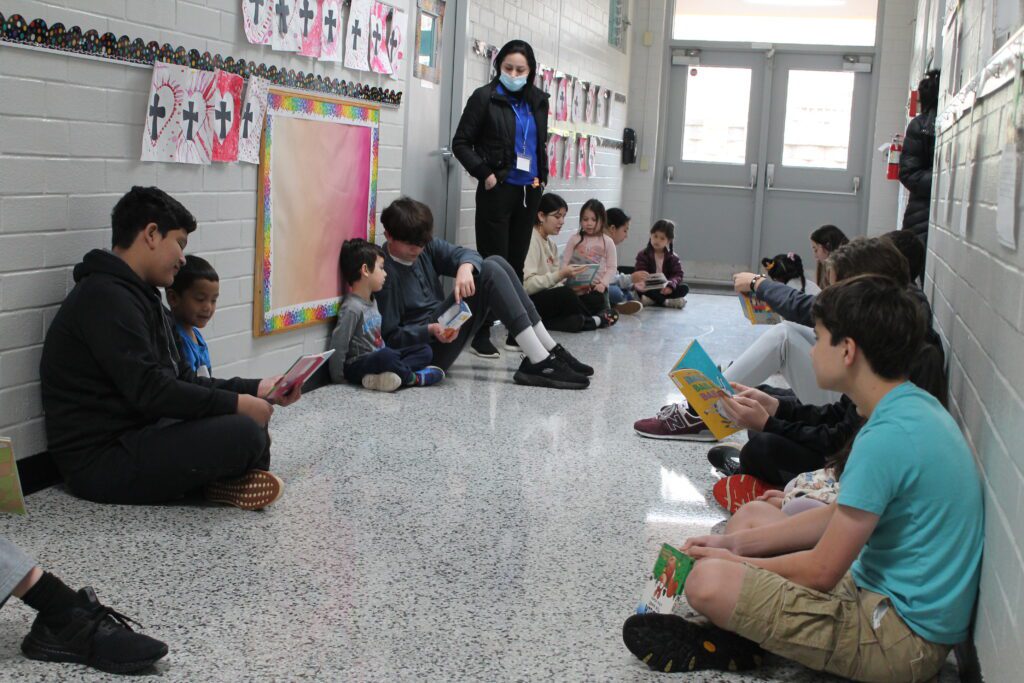
Literacy is a significant component of ISLA Los Sábados, in addition to students applying their Spanish language skills to learning about history, science, art, and other subjects.
Benites said some students start the program with strength in speaking Spanish but not reading it, and others have strong reading comprehension but little conversational Spanish. In all cases, Spanish literacy is at the heart of what ISLA Los Sábados offers.
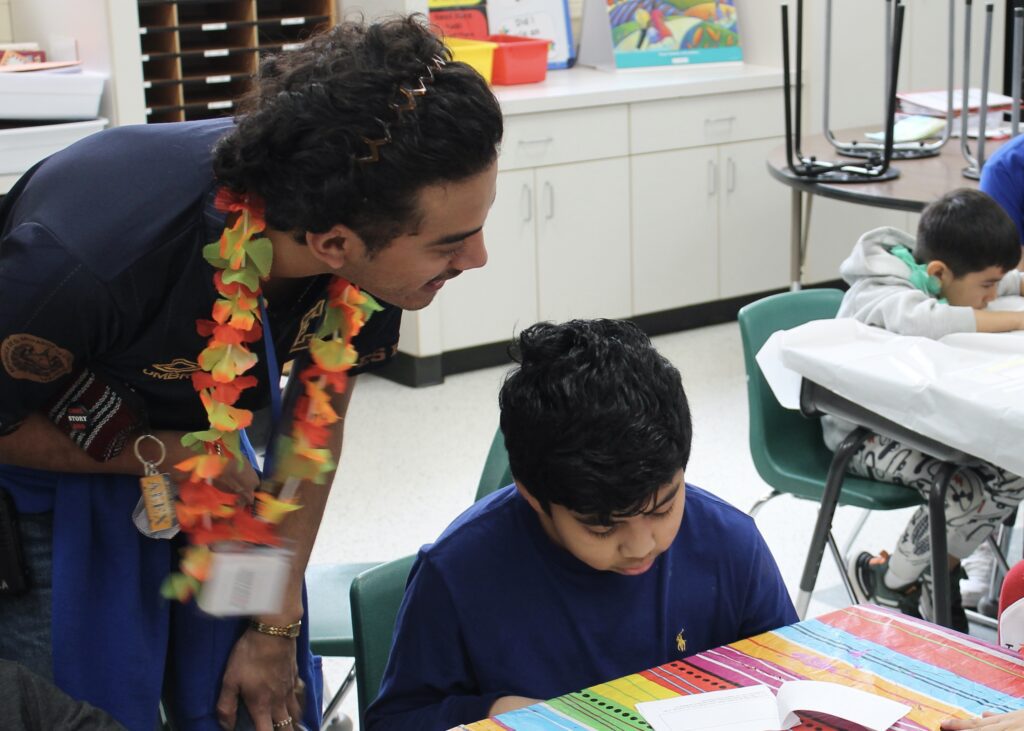
Students who start attending ISLA Los Sábados in preschool can continue with the program through their senior year of high school.
“We have 14 ISLA graduates already in college,” Benites said. “And sometimes they visit us because their [siblings] are still in the program.”
That’s not the only reason graduates return to Los Sábados.
“We have two graduates who are going to come and do kind of a mentorship with high schoolers that are here,” Benites said. They’re planning a workshop about how to apply for college and overcoming the barriers they’ve faced in the transition to post-secondary education.
It’s this type of culturally specific programming that gives ISLA students a feeling of connection.
Importancia de pertenecer: Importance of belonging
There are 236,156 students who speak Spanish attending North Carolina’s public schools — more than 17% of our state’s students.
And while almost 20% of students are Hispanic, less than 5% of teachers are.
Teachers for ISLA Los Sábados are professional educators, all fluent in Spanish. Some are licensed to teach in North Carolina and work full-time in public schools; others are certified to teach in their country of origin and work in non-education settings Monday through Friday.
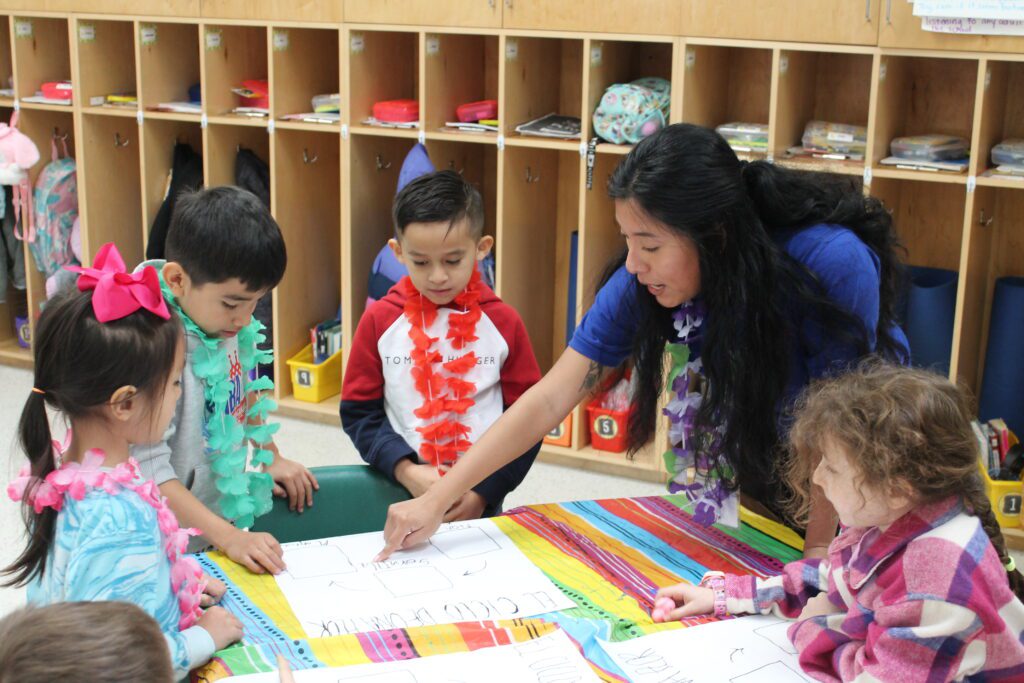
Benites shared an example of why families enroll their students with ISLA Los Sábados. One mother told her, “I realized my kid needs to go to ISLA because I used to send to the school in the lunch box tortillas and whatever,” but by third grade the daughter was asking for peanut butter and jelly sandwiches.
“They start changing who they are,” Benites said.
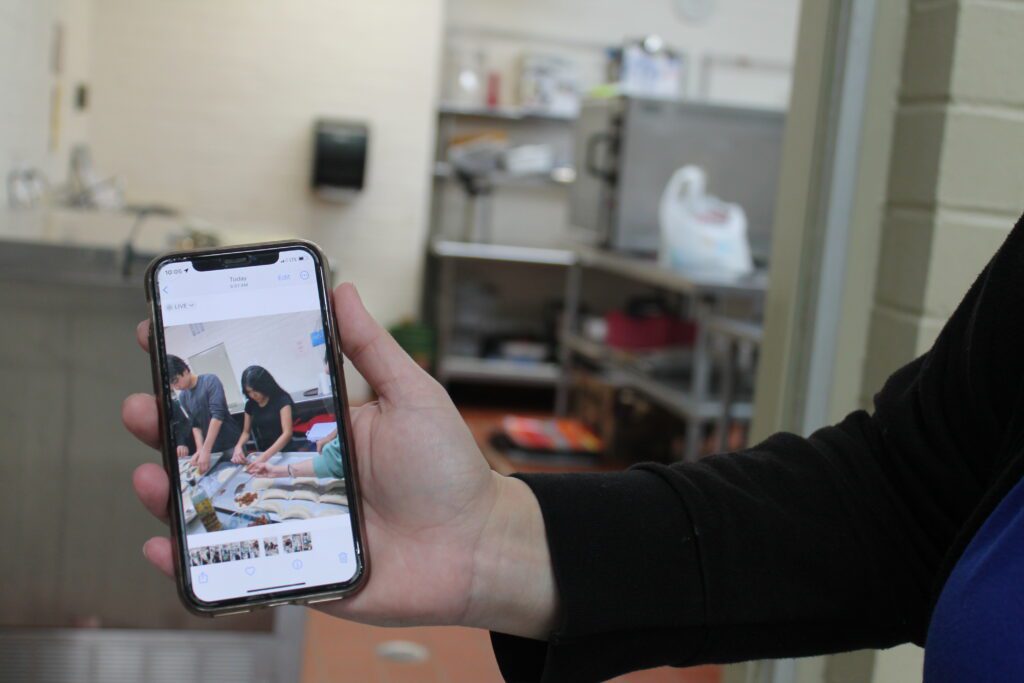
Benites says the mother agreed to make whatever her daughter wanted for lunch, but told her, “Don’t feel ashamed about who you are, what you eat, or where you come from.”
At ISLA Los Sábados, students learn about their culture through their heritage language from teachers and classmates who share it.
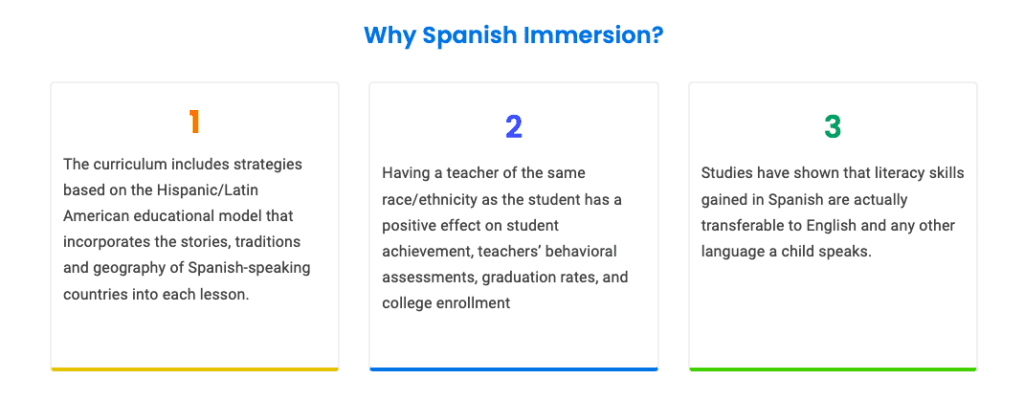
A major component of ISLA Los Sábados is a commitment from parents to attend one workshop each month. Workshops take place in a quiet corner of campus while students are in classrooms and cover everything from saving money for a house, to navigating the American education system. On the first Saturday in March, the workshop was about mental and emotional health.
Empowering families to engage with their school systems is an important part of ISLA’s work. You can learn more about ISLA’s work with parents through ISLA Padres here.
“ISLA creates a safe space, this space of belonging first, where your diversity is celebrated,” Benites said. “And I think when we’ve got that, then we can teach the kids.”
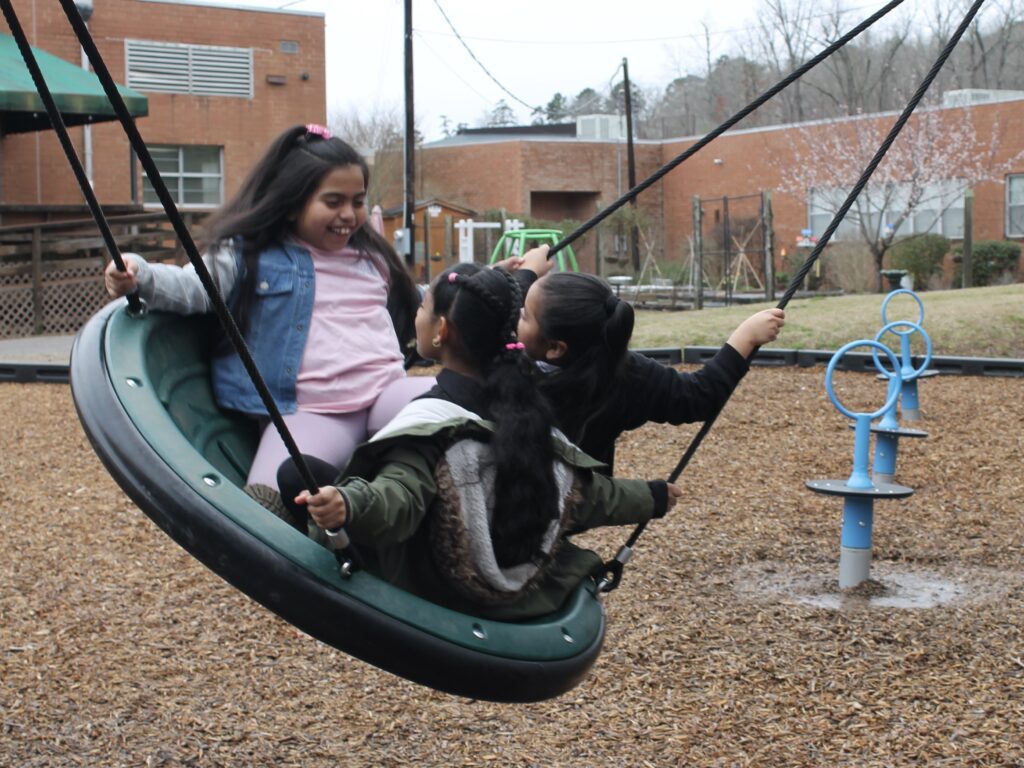
Behind the Story
It is EdNC’s practice to use Hispanic/Latino/Latina/Latinx/Latine based on the data, individuals, or organizations being cited.




